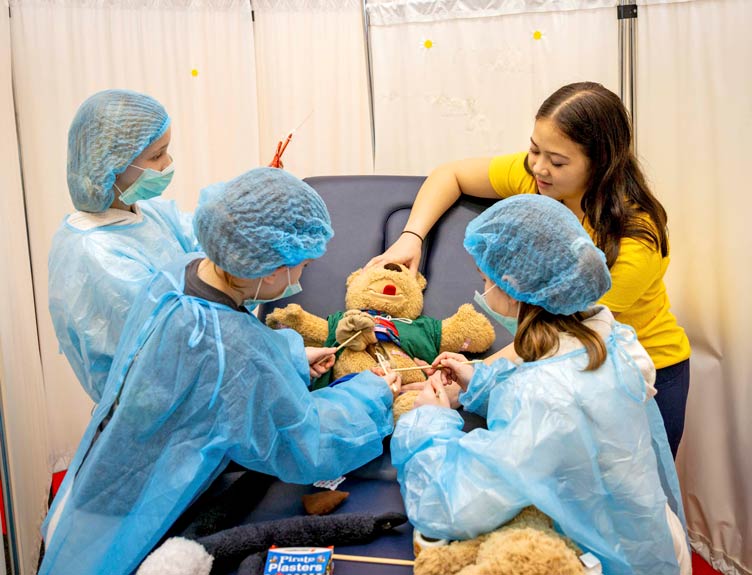RCSI researchers collaborate on three new National Disruptive Technologies Innovation Fund projects
RCSI is a partner on three projects awarded funding through the latest call of the Disruptive Technologies Innovation Fund (DTIF). The initiatives, which have received over €13 million collectively, aim to improve treatment for cardiovascular disease, advance surgical techniques and enhance stroke rehabilitation.
The announcement was made by the Minister for Enterprise, Tourism and Employment, Peter Burke, and Minister for Further and Higher Education, Research, Innovation and Science, James Lawless, as part of the most recent DTIF funding round. In total, €33.1m was awarded to eight new projects.
RCSI researchers are leading the university’s contributions to the following three consortia:
- Professor Deborah McNamara, President of RCSI, Professor Jarlath Bolger (Department of Surgery) and Professor Claire Condron (RCSI SIM) are leading RCSI’s contribution to the €3.9m MAR project which aims to develop a disruptive, minimally invasive magnetic implant to improve outcomes in gastrointestinal surgery.
- Professor Osama Soliman (Department of Anatomy and Regenerative Medicine) is contributing to the €7.1m DUO MAX project, which will develop a novel device for patients unsuitable for tricuspid valve repair or replacement. It targets high-risk individuals, including older adults, patients with compromised right ventricular function and those with existing tricuspid devices.
- Professors Suzanne McDonough and Frances Horgan (School of Physiotherapy) and Professor David Williams (School of Medicine) will collaborate on the €2.1m cueStim-Stroke project to develop the world’s first bilateral sensory electrical stimulation device to deliver rhythmic cueing for treating gait impairments following stroke.
Shaping a new generation
Commenting on the announcement, Professor Fergal O’Brien, Deputy Vice Chancellor for Research and Innovation at RCSI, said: “These awards highlight RCSI’s commitment to advancing healthcare solutions that are both clinically meaningful and commercially viable.
“The DTIF provides a platform for collaboration between academic, clinical and industry partners, enabling our researchers to shape the next generation of technologies that directly address the needs of patients and healthcare systems.”
The DTIF, administered by the Department of Enterprise, Trade and Employment with support from Enterprise Ireland, aims to drive collaboration between Ireland’s world-class research base and industry to develop disruptive technologies with strong commercial potential and real-world impact.



